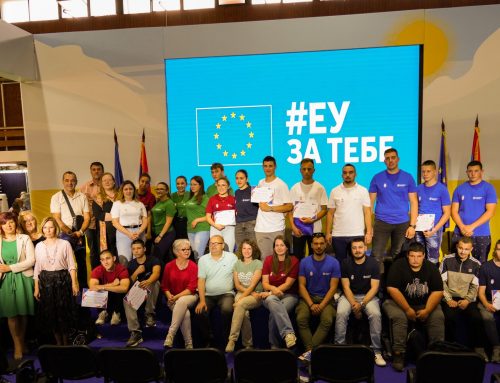The final round, of the first phase, of the European Parliament facilitated Inter-Party Dialogue was held on 12 and 13 December in the National Assembly of Serbia. It took-stock of the achievements since November’s 2nd Inter-Party Dialogue (IPD) and called for urgent final steps to fulfil the commitments (in the annexed “Implementation Table”) to improve the conditions for holding 2020 Parliamentary Elections. The Dialogue welcomed the steps taken in the short timeframe of three rounds of Dialogue. However, the Dialogue insisted that the follow-up and concrete implementation of these commitments must be the focus between now and the beginning of the election campaign in order to deliver tangible improvements on the ground, particularly in the area of freedom of the media and on the role of the regulation of the public broadcasters.
Although there has been progress in the improvement of the work of the Republic Electoral Commission (REC), turning commitments into concrete deliverables according to a strict timeline is still needed in the following key areas:
- improving the work of the Electronic Media Regulator (REM) by appointing “3+2” new REM Members to be confirmed in a vote by the end of the year.
- adoption of a new Regulation for the public broadcasters and its effective implementation,
- creation of the Supervisory Board in the Parliament and assure a transparent, timely and impartial work under its competences well before elections,
- implementation of the adopted amendments of the relevant laws for improving the electoral conditions in practice.
The Dialogue reached a consensus on a timeline, proposed by the Government, to implement all outstanding commitments (set out in the attached Implementation Table) before the election campaign and in order to give all stakeholders, especially Serbia’s citizens, the opportunity to have greater confidence in the integrity of the electoral framework. The facilitators also called for widest possible participation in the elections for providing needed pluralistic democratic choice for the Serbian citizens.
We have also had a discussion on the possibility, in full respect of the Constitution of Serbia, of holding the elections as late as possible in order to give time for all the commitments to be implemented and for all stakeholders, especially the people of Serbia, to feel the full effects of the improvements in the electoral conditions.
We remind all political actors in the country of their responsibility to avoid inflammatory language, to counter hate-speech, avoid aggravating social divisions, and end disinformation in the media before, during and after the electoral campaign. The adoption of a new Regulation of the public broadcasters, the establishment of the Supervisory Body and, in particular further efforts to strengthen the role and conduct of the REM will be important steps to strengthen the oversight of the media and to help ensure all political forces participating in the elections to have fairer access and coverage in the media.
The Dialogue underlined the need to continue to monitor the implementation of all the commitments, within the timelines set out in the Implementation Table. As such, the Dialogue welcomed the European Parliament Facilitator’s offer to continue to monitor progress on the implementation and noted their willingness to provide any further support should it be requested by the National Assembly.
The Dialogue calls on the observation mission of OSCE/ODIHR and other domestic and international observers, including any European Parliament Observation Delegation, to give a final objective assessment on the progress to implement all these commitments to improve the conditions for holding the parliamentary elections.
A second phase of the dialogue is foreseen to take place after the 2020 Parliamentary Elections and will focus on the longer-term objective of improving Inter-Party Dialogue inside the National Assembly. This will include the reform of the Rules of Procedure and further review of the overall electoral framework in line with the European Commission and ODIHR reports. The second phase should also address other concerns raised in the Dialogue such as those of national minorities.



